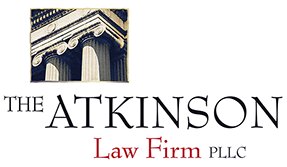Best Defamation Lawyers in North Carolina
Share your needs with us, get contacted by law firms.
Free. Takes 2 min.
Or refine your search by selecting a city:
List of the best lawyers in North Carolina, United States
About Defamation Law in North Carolina, United States
Defamation is a civil wrong that occurs when someone makes a false statement about another person that harms their reputation. In North Carolina, defamation covers both libel (written defamatory statements) and slander (spoken defamatory statements). To succeed with a defamation claim in North Carolina, the plaintiff must generally prove that the statement was false, published to a third party, and resulted in harm. Defamation law aims to strike a fair balance between protecting individuals’ reputations and upholding freedom of speech.
Why You May Need a Lawyer
There are several situations where you might need a lawyer’s help with defamation in North Carolina:
- If you believe that someone has spread false and damaging statements about your character or business, and you want to sue for damages.
- If you are being accused of making defamatory statements and need to defend yourself in court or respond to a cease and desist letter.
- If you are a public figure and have been targeted by false or malicious statements, requiring guidance through the higher legal standard that applies.
- If you run a business and are concerned about online reviews, social media statements, or press articles that you believe are defamatory.
- If you are unsure if a statement about you qualifies as defamation under North Carolina law and want advice on your legal options.
A lawyer can help you understand your rights, assess your chances of success, negotiate settlements, or represent you in court if necessary.
Local Laws Overview
Defamation law in North Carolina is based on both state statutes and court decisions. Some key aspects include:
- Elements of Defamation: Plaintiffs must show that a statement was published to a third party, that it was false, that it caused harm, and that it was made without legal privilege.
- Public vs. Private Figures: Public figures or officials must show "actual malice," meaning the defendant knew the statement was false or acted with reckless disregard for the truth. Private individuals only need to show negligence.
- Libel Per Se and Slander Per Se: Certain statements are considered so damaging that harm is presumed, such as accusing someone of a crime, having a contagious disease, or engaging in improper professional conduct.
- Statute of Limitations: Actions for defamation must generally be filed within one year from the date of publication.
- Privileges and Defenses: Defendants may have defenses including truth, statements made under privilege (such as in court), or statements of opinion rather than fact.
- Damages: Plaintiffs may be awarded compensatory damages for actual harm and, in certain cases, punitive damages if there is clear evidence of actual malice or reckless indifference.
Frequently Asked Questions
What is the difference between libel and slander in North Carolina?
Libel refers to written or printed defamatory statements, while slander refers to spoken defamatory statements. Both are actionable under North Carolina law, but written defamation (libel) can often be considered more severe due to its potentially wider reach.
How do I prove someone defamed me in North Carolina?
You must usually prove the statement was false, was communicated to a third party, caused harm to your reputation, and was not privileged. If you are a public figure, you must also show actual malice.
Can a negative review be considered defamation?
A negative review can be defamatory if it contains false factual statements that harm your reputation. However, opinions and truthful statements are generally protected under the First Amendment.
Is there a time limit to file a defamation lawsuit in North Carolina?
Yes. The statute of limitations for defamation claims in North Carolina is generally one year from the date the defamatory statement was made or published.
What defenses are available against a defamation claim?
Common defenses include truth, opinion, consent, privilege (such as court testimony), and lack of actual malice if the plaintiff is a public figure.
Do I need to show actual harm to win a defamation case?
For certain types of statements (libel per se or slander per se), harm to reputation is presumed. In other cases, you must show actual harm such as financial losses or emotional distress.
Can I sue for defamation over something said online?
Yes. Online statements can be considered defamatory under North Carolina law if they meet the legal requirements for defamation.
What is meant by "actual malice"?
Actual malice means the defendant knew the statement was false or acted with reckless disregard for whether it was true or false. This standard applies when the plaintiff is a public figure.
Can businesses file defamation lawsuits?
Yes. Businesses and organizations can pursue defamation claims if false statements harm their reputation or business interests.
What should I do if I receive a cease and desist letter for alleged defamation?
You should consult with an attorney before responding. An attorney can help you assess the claim and determine your best course of action.
Additional Resources
If you need more information or assistance, the following resources can be helpful:
- North Carolina Judicial Branch - For court forms, information on filing claims, and finding your local courthouse.
- North Carolina State Bar - For finding qualified attorneys and legal resources.
- Legal Aid of North Carolina - For those who qualify for free or low-cost legal help.
- UNC School of Government - For educational materials on state laws and defamation issues.
- North Carolina General Assembly - To read the text of relevant statutes.
Next Steps
If you believe you are involved in a defamation issue, it is important to act promptly due to the one-year statute of limitations in North Carolina. Begin by gathering evidence such as copies of the statements, records of harm suffered, and any relevant correspondence. Seek advice from a qualified North Carolina attorney who specializes in defamation or civil litigation. An attorney can help you evaluate your case, weigh your options, and represent your interests in negotiations or in court if needed.
Avoid retaliating or making additional statements about the matter publicly. Instead, allow your legal representative to guide your response. Acting quickly and carefully can help protect your rights and improve your chances of a favorable outcome.
Lawzana helps you find the best lawyers and law firms in North Carolina through a curated and pre-screened list of qualified legal professionals. Our platform offers rankings and detailed profiles of attorneys and law firms, allowing you to compare based on practice areas, including Defamation, experience, and client feedback.
Each profile includes a description of the firm's areas of practice, client reviews, team members and partners, year of establishment, spoken languages, office locations, contact information, social media presence, and any published articles or resources. Most firms on our platform speak English and are experienced in both local and international legal matters.
Get a quote from top-rated law firms in North Carolina, United States — quickly, securely, and without unnecessary hassle.
Disclaimer:
The information provided on this page is for general informational purposes only and does not constitute legal advice. While we strive to ensure the accuracy and relevance of the content, legal information may change over time, and interpretations of the law can vary. You should always consult with a qualified legal professional for advice specific to your situation.
We disclaim all liability for actions taken or not taken based on the content of this page. If you believe any information is incorrect or outdated, please contact us, and we will review and update it where appropriate.
Browse defamation law firms by city in North Carolina
Refine your search by selecting a city.
















